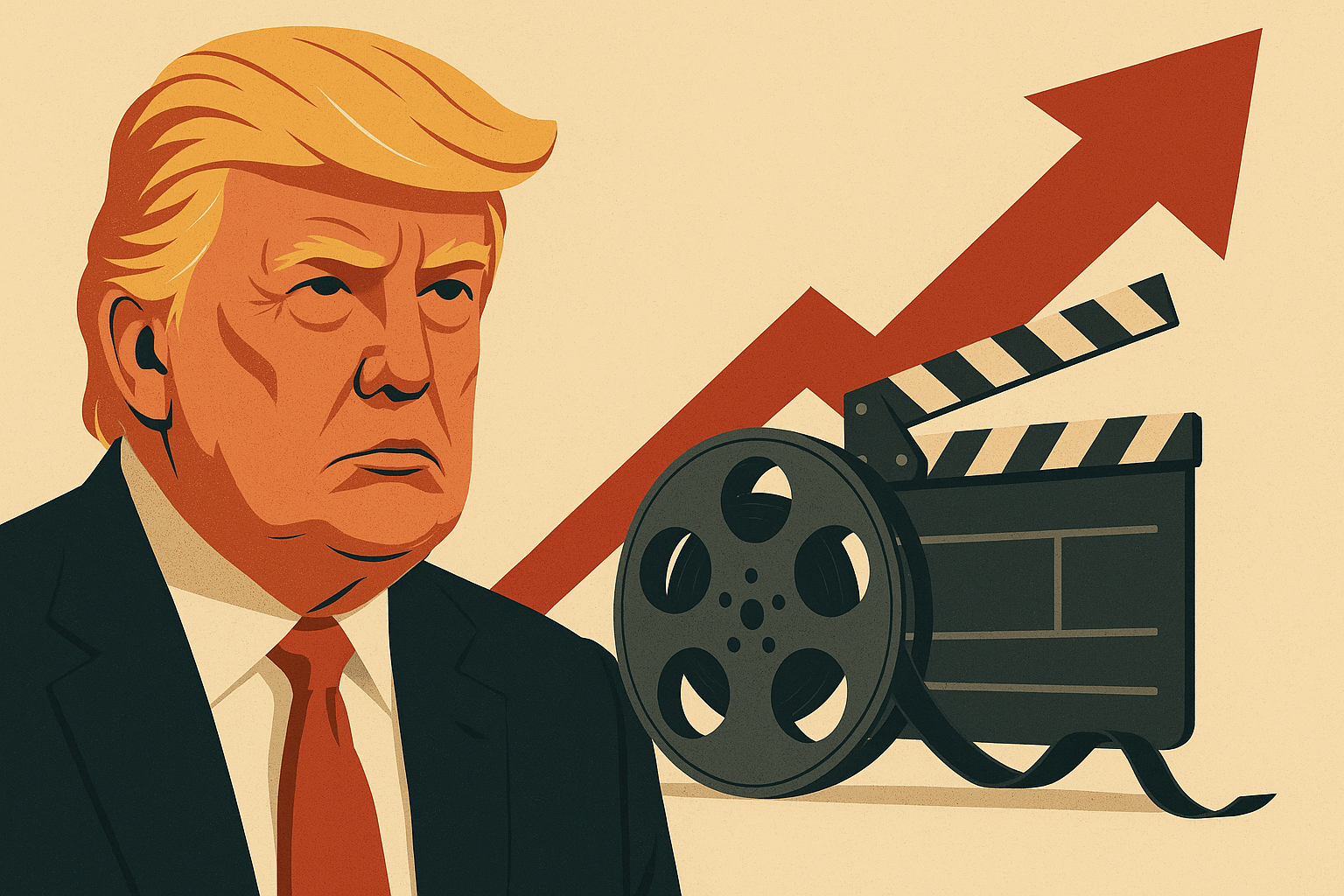President Donald Trump announced plans to impose a 100% tariff on films produced outside the United States, a move that could dramatically reshape the global film industry and spark international trade tensions.
A Radical Shift in U.S. Trade Policy Toward Entertainment
The proposal, unveiled on Monday, marks one of the most aggressive protectionist measures yet applied to the entertainment sector. Trump framed the initiative as an effort to protect American cultural industries, arguing that Hollywood has been undermined by what he described as “unfair competition” from international studios.
If enacted, the tariff would double the cost of bringing foreign films into U.S. theaters, streaming platforms, and distribution channels. Industry observers warn this could discourage international releases in the American market and significantly reduce the diversity of films available to U.S. audiences.
Global Industry Concerns
Film industry leaders in Europe, Asia, and Latin America have expressed alarm at the proposal. For decades, international productions have relied on access to U.S. theaters and streaming services to reach broader audiences and secure profits. The imposition of such steep tariffs, critics argue, risks marginalizing independent and foreign-language films, while straining cultural exchange between the United States and the rest of the world.
Trade experts also warn that the measure could provoke retaliatory tariffs from other countries. Nations with strong film industries, such as France, India, and South Korea, may impose their own restrictions on American films, which dominate the global box office.
Domestic Reactions
Reactions within the United States are divided. Some industry unions and producers welcomed the proposal, claiming it could funnel more resources toward domestic productions and boost Hollywood’s competitive edge. Others, however, fear the measure will limit creative collaboration, reduce cultural exposure for American audiences, and risk escalating international trade disputes.
Streaming platforms, in particular, may be heavily affected. Companies like Netflix, Amazon, and Apple rely on a wide variety of foreign content to attract subscribers. A 100% tariff could make licensing or importing these productions prohibitively expensive.
Next Steps
The administration has not yet provided details on when or how the tariff would be implemented, but officials suggested the policy could be tied to broader trade negotiations. Congressional approval may also be required, depending on how the measure is structured.
For now, the proposal underscores Trump’s continuing commitment to an “America First” trade strategy — this time targeting one of the most visible arenas of cultural globalization: cinema.



